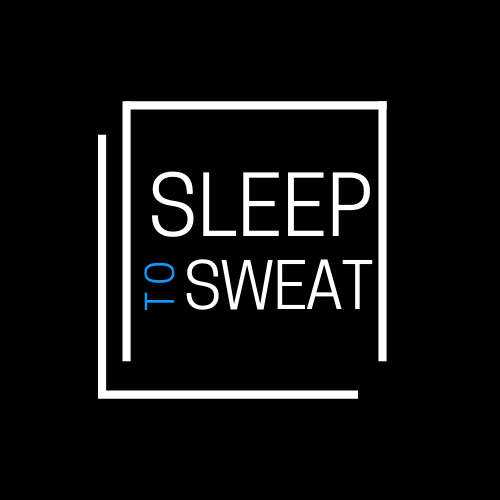Revitalize your body and mind.
dedicated to helping readers achieve their fitness and wellness goals through the power of sleep.


Committed to expertise
Real sleep tips for real people.
At Sleep to Sweat, we understand that fitness and wellness are not just about working out and eating well. They are also about giving your body the time and space it needs to recover and recharge. That's why we focus on the importance of sleep and how it can help our readers achieve their desired results.
Your sleep is our forte.
We believe that quality sleep is the foundation of a healthy and active lifestyle
Healthy sleep, healthy life.

How Restful Nights Can Improve Your Wellness
Sleep is a vital yet often underestimated pillar of health. It’s more than just a way to rest after a long day — it’s a crucial process that allows the body to heal, regenerate, and restore balance. Yet, with the demands of modern life, quality sleep often takes a back seat to work, entertainment, and stress. Unfortunately, sleep deprivation can lead to a cascade of health issues, from weakened immunity to cognitive decline.
Why Sleep Matters
During sleep, the body undergoes multiple processes essential for maintaining physical and mental well-being. These include muscle repair, hormone regulation, and cognitive processing. The brain uses sleep to consolidate memories and clear out toxins that accumulate throughout the day. Without adequate sleep, these functions become compromised, leading to brain fog, irritability, and impaired decision-making.
Chronic sleep deprivation has also been linked to a higher risk of chronic conditions such as obesity, diabetes, and cardiovascular disease. This is because sleep influences hormones like insulin and cortisol, which regulate blood sugar levels and stress responses. When sleep is disrupted, these hormones can become imbalanced, increasing the risk of metabolic disorders.
How Much Sleep Do You Really Need?
Sleep requirements vary by age, but most adults need between 7 to 9 hours of sleep per night. However, it’s not just the quantity of sleep that matters — quality is equally important. Deep sleep and REM (rapid eye movement) sleep are the two most restorative stages, during which the body repairs tissues, strengthens the immune system, and processes emotions.
Factors like stress, diet, and exposure to blue light from screens can interfere with these critical sleep stages. That’s why establishing a consistent sleep schedule and bedtime routine can significantly impact how rested you feel in the morning.
Tips for Improving Sleep Quality
Set a Consistent Sleep Schedule:
Go to bed and wake up at the same time each day, even on weekends. This helps regulate the body’s internal clock, making it easier to fall asleep and wake up naturally.Create a Relaxing Nighttime Routine:
Signal to your brain that it’s time to wind down by engaging in calming activities like reading, stretching, or taking a warm shower. Avoid stimulating activities such as intense workouts or screen time an hour before bed.Optimize Your Sleep Environment:
Keep the bedroom cool, dark, and quiet. Invest in a comfortable mattress and pillows that support proper spinal alignment. Consider using blackout curtains to block out excess light and a white noise machine to drown out background noise.Limit Caffeine and Alcohol:
While caffeine can provide a temporary energy boost, it can also interfere with sleep, especially when consumed in the afternoon or evening. Similarly, alcohol may initially induce drowsiness but can disrupt deep sleep later in the night.Practice Mindful Breathing or Meditation:
Stress and anxiety can make it difficult to relax before bedtime. Simple breathing exercises or guided meditation can help calm the mind and release physical tension.
The Connection Between Sleep and Mental Health
Sleep and mental health are closely connected. Insufficient sleep can intensify feelings of stress and anxiety, while chronic sleep deprivation may increase the risk of mood disorders like depression. On the other hand, a restful night’s sleep can enhance focus, emotional resilience, and overall mental clarity.
Implementing a calming pre-sleep routine, such as journaling or practicing deep breathing, can significantly improve mental relaxation. This can lead to faster sleep onset and more restorative rest.
Nutrition and Sleep: How Diet Affects Rest
Diet plays a crucial role in sleep quality. Nutrient deficiencies can disrupt sleep patterns, particularly when it comes to magnesium, calcium, and vitamin D. These nutrients help regulate melatonin, the hormone responsible for sleep-wake cycles.
For those struggling with consistent sleep, incorporating sleep-supportive foods such as bananas, almonds, and chamomile tea can be beneficial. Additionally, certain supplements may provide targeted support.
Rootine offers a range of products designed to fill nutritional gaps and support overall health. Their formulas are tailored to individual needs, providing key nutrients that can promote better sleep and sustained energy levels throughout the day.
Sleep and Physical Recovery
During deep sleep, the body undergoes physical restoration. This is when muscle tissue repairs, cells regenerate, and growth hormone is released. Athletes and fitness enthusiasts can benefit from prioritizing sleep, as it aids in muscle recovery, reduces inflammation, and promotes overall performance.
For those engaging in intense physical activity, consistent sleep can be just as crucial as exercise and nutrition. Implementing a wind-down routine that includes stretching or a hot bath can signal to the body that it’s time to shift into recovery mode.
The Role of Supplements in Supporting Sleep
While lifestyle changes are the foundation of better sleep, supplements can provide additional support. Nutrients like magnesium, melatonin, and L-theanine have been shown to promote relaxation and ease sleep onset.
For a targeted approach, Rootine offers scientifically formulated supplements designed to meet specific health needs. Whether you’re dealing with stress, fatigue, or nutrient imbalances, their products are crafted to support optimal function, including better sleep.
Sleep is more than just rest — it’s an active state of renewal that impacts every aspect of health. From cognitive function to physical recovery, every system in the body relies on consistent, high-quality sleep to perform at its best.
By making small adjustments to your routine and incorporating supportive products like those from Rootine, you can create an environment that fosters restful sleep. Over time, these habits can contribute to greater energy, focus, and overall health.
One or more of the links above are affiliate links, meaning, at no additional cost to you, we will earn a slight commission if you click through and make a purchase. Each of these products is chosen by a trusted member of our team.



